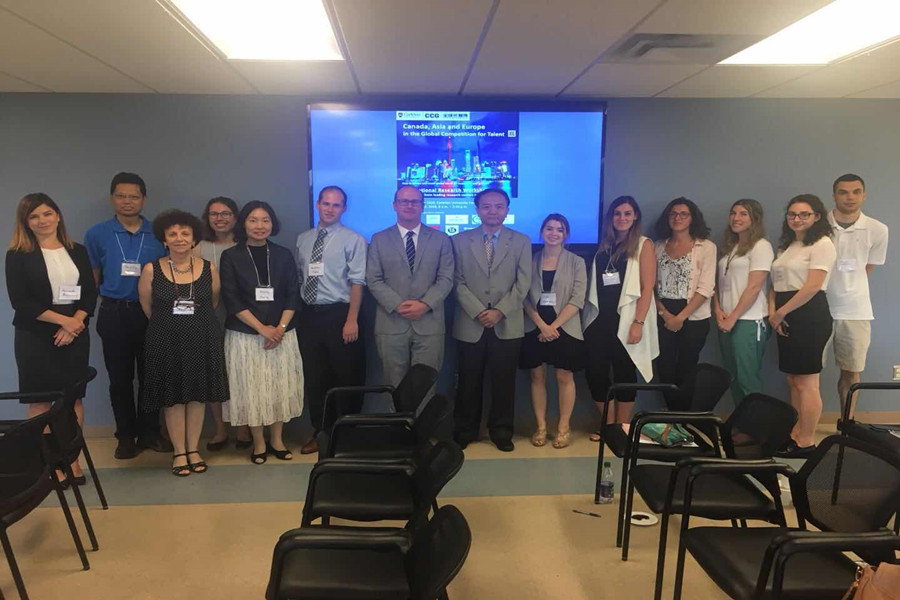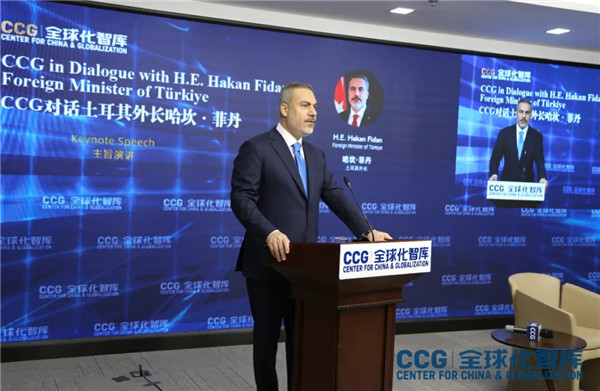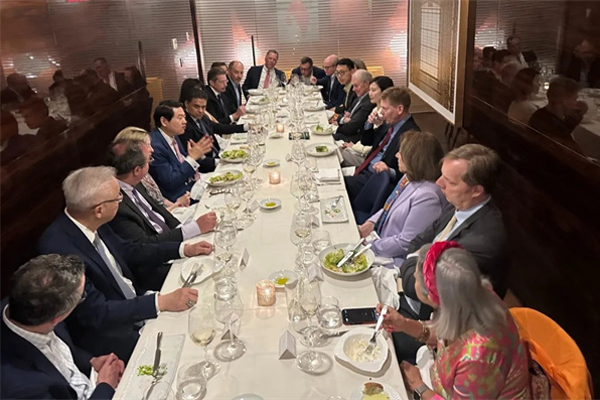CCG and Carleton University co-host research workshop on global talent

On July 3, CCG and Carleton University jointly hosted an international research workshop entitled “Canada, Asia and Europe in the Global Competition for Talent” on the Carleton campus in Ottawa, Canada. The event saw over a great number of scholars and experts from North America, Asia and Europe gather together for in-depth discussion on the global competition for talent against the backdrop of increasing talent mobility and the rising of counter-globalization waves. Through this workshop, CCG and Carleton established a cooperative relationship, working together to construct a transcontinental research network for talent policy that can support the coordinated development of talent across various regions.
Opening remarks were given by Mike Liu, CCG Deputy Secretary-General, and Dr. André Plourde, Carleton’s Dean of Public Affairs. Workshop participants from Carleton University included Dr. Martin Geiger, leader of Carleton’s ‘Mobility for Innovation’ program; Jeff Sahadeo, Director of the Institute for European, Russian and Eurasian Studies and Steering Committee Member of Migration & Diaspora Studies; Professor Rebeca Raijman from Haifa University; and 40 other experts. Workshop participants discussed issues related to cultivating talent, global flows of talent, and regional competition to attract skilled workers.
With the prevalence of terrorism, counter-globalization trends and a new wave of conservatism in the United States and Europe, these developed countries and regions are now paying more attention to the quality of imported talents than they had in the past, which has undoubtedly made the competition for global talent, especially highly skilled talent, increasingly fierce. Mr. Liu delivered a speech on the development of China’s talent policies in the new era, highlighting the contributions of long-term, in-depth research by global think tanks, in particular CCG, in the fields of global talent mobility and migration policy. Focal points of this research include Chinese overseas students and returnees, policies aimed at promoting China’s “Thousand Talents Plan,” and attracting highly-skilled international talent to China. Mr. Liu also mentioned that this year, China has finally established the State Immigration Administration, a direct result of CCG’s decade-long research work and policy recommendations to the government. The creation of this crucial institution bodes well for a comprehensive approach to talent and immigration policy formulation, as well as providing a mechanism to manage international talent and promote globalization.
Liu also emphasized the role of talent in propelling China’s reform and opening process over the last four decades, in particular training to upgrade the nation’s human capital and contributions from students that had studied abroad and then returned to China. Today, China’s economic development and supportive local policies are enticing more returnees and foreign skilled workers to China.
Workshop participants explored various aspects of talent development policy from different perspectives, particularly policies designed to attract high-end talents in North America, Asia and Europe. It was recognized that with the rapid development of a global innovation-oriented economy, countries, regions and cities are engaged in increasingly fierce competition for skilled workers, especially in the STEM fields. Participants also discussed how the adoption of preferential policies by different localities is increasing global talent mobility.
Citing various challenges in attracting and retaining talent, workshop participants agreed that there is much work to be done to refine talent policy and provide skilled workers with career development opportunities. This intensifying trend sees countries around the world striving to boost competitiveness in the battle for global talent through policy formulation and nurturing relevant industries to promote sustainable local development.
During the conference, representatives from CCG and Carleton University discussed opportunities for research collaboration on global talent and mobility policy, agreeing to strengthen cooperation to deepen understanding of key trends in the field.





